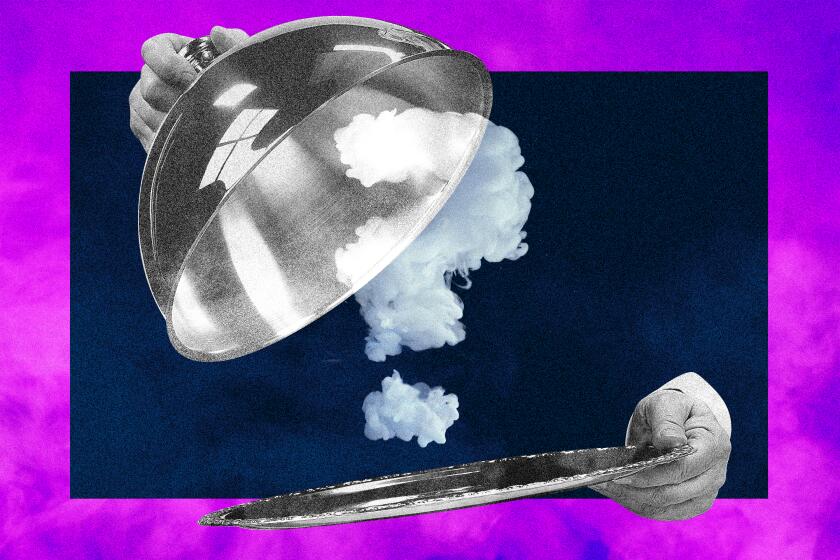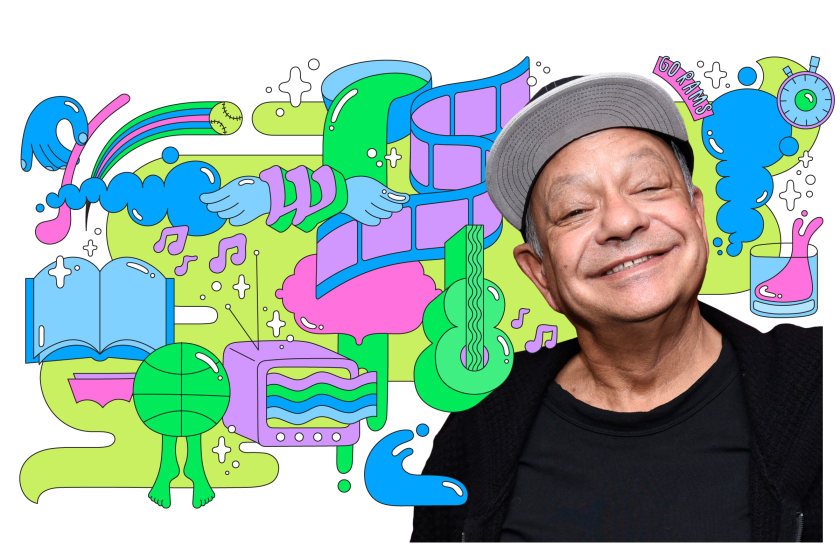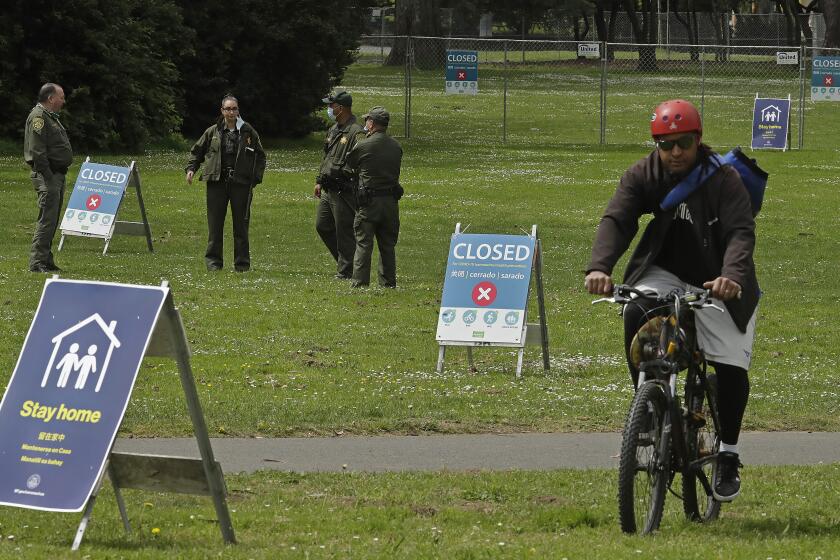Police Say Tests Show King Was Legally Drunk
Los Angeles police officials said Thursday that blood and urine samples taken after the beating of Rodney G. King show he was legally drunk and had traces of marijuana in his system, adding yet another twist to the controversial case.
However, police officials emphasized that the test results stating that King was intoxicated in no way warrant the violent force used by officers in the March 3 incident.
“We’re not saying this proves Mr. King’s state was such that his behavior was something that would justify what the officers did,” said Lt. Fred Nixon, one of the department’s top spokesmen. “There is no level of alcohol that would justify what happened to Mr. King.”
The test results conflict with earlier reports from physicians who have examined King, both in the hours after the beating and in the days that followed. The police tests show no other illegal drugs present in King’s system, and contradict repeated statements from many officers at the scene and their supervisors who said King was under the influence of PCP.
The beating, videotaped by an amateur cameraman, has provoked a growing outcry and become a national symbol of police brutality. Four Los Angeles police officers have been indicted in the incident.
On Thursday, President Bush made his first lengthy comments on the beating. The President said watching the tape “made me sick,” but he also had words of support for Los Angeles Police Chief Daryl F. Gates, who has resisted calls to resign.
“In many ways he has been an exemplary police chief,” Bush said in Washington. “I think the man’s entitled to a credible hearing.”
Gov. Pete Wilson echoed Bush’s remarks, condemning the violence he saw on the videotape but voicing support for Gates.
“I think there are people who are seeking to make him a scapegoat,” Wilson said at a Los Angeles appearance. “I don’t think the chief should resign, nor should people ask for his resignation, until a case can be made that there has been dereliction on his part.”
As Gates was receiving support from high-level politicians, he revealed Thursday morning in a nationally televised interview that he and his family have been the targets of repeated death threats. While refusing to discuss the nature of the threats, police officials said they have increased security for both the chief and the members of the Police Commission.
In a speech Thursday evening to the Los Angeles chapter of the Public Relations Society of America at the Valley Hilton, Gates reiterated that he has no intention of resigning or retiring. But he did say that once he had seen the department through this crisis, he might consider retiring.
“I’m going to remain,” he said. “I’m going to see this through.”
Gates added that once public confidence has been restored in the department, “then I will be satisfied and go ahead and retire and enjoy the fruits of 42 years of labor.”
The results of blood and urine tests, taken from King about five hours after the his arrest, were released by police late Wednesday at the request of reporters, Nixon said.
The tests showed that King’s blood-alcohol level was 0.079%, slightly below the legal limit of 0.08% at which one is considered intoxicated under California law. However, Nixon pointed out that because the tests were taken five hours after his arrest, King was above the legal limit at the moment of his arrest.
“He was well above the level at which one can legally be presumed under the influence,” Nixon said, adding that the tests were performed by a state-certified independent laboratory.
Although the tests showed traces of marijuana, Nixon said the drug could have been ingested months ago.
Nixon said the department received the results of the blood test on Monday and the urine test on Tuesday.
According to grand jury documents reviewed by The Times, there were contradictory conclusions made by police, witnesses and physicians about whether King was intoxicated at the scene.
Dr. Antonio Mancia, an emergency room physician at Pacifica Hospital in Sun Valley who examined King, said he found “no clinical evidence” that King was under the influence of drugs or alcohol when LAPD officers brought him into the hospital.
Mancia, the first physician to treat King, told investigators that the patient was “docile and cooperative.”
“King did not complain or make any accusations against anyone regarding his injuries,” Mancia said in the investigators’ reports. “King did not act like he was under the influence of PCP or alcohol at the time of the examination. King did not have slurred speech. His pupils appeared normal.”
King told investigators that he had consumed only one beer before he was arrested by police. However, California Highway Patrol Officer Melanie Singer, one of the officers at the scene, described to investigators how she first encountered King, who uses his middle name of Glen:
“I walked over to the driver and asked him what his name was and he said, ‘Glen.’ I couldn’t hear him so I leaned closer to him and smelled a strong odor of alcohol on his breath and noticed his speech was slurred.”
She also noted that he was smiling, laughing and dancing when he got out of the car after a police pursuit that ended in Lake View Terrace. She described his behavior as “very strange.”
The uproar over King’s arrest has placed Gates in a position of trying to hang on to his 13-year job as head of the Police Department in the nation’s second-largest city.
Defending his department from allegations of racism, Gates has appeared on numerous television news programs. Interviewed on NBC’s “Today” show Thursday morning, he was asked to gauge what effect the crisis has had on his personal life.
“Naturally it impacts on me and my family,” he said. “We’ve been subjected to a great deal of intimidation by those who threaten us and threaten our lives.
“But,” he reiterated, “ . . . no one is going to force me out of this office.”
Nixon, the Police Department spokesman, said the department does not take threats against the chief lightly.
“Emotions are running particularly high right now,” Nixon said. “Even though we feel capable of keeping (the chief) safe, we continue to take such threats seriously.”
Two police sources said that in recent days a number of new security measures have been set in place.
Gates, who normally is seen with only one police bodyguard, has increased his personal security detail to two and sometimes three officers.
Seven to eight uniformed officers were assigned to provide security when Gates attended two rancorous Police Commission meetings at Parker Center, where many in the audience screamed for the chief’s resignation.
Ten detectives on the commission’s investigative staff who normally wear business attire have come to work in their blue uniforms and with holstered guns during the days of the commission meetings.
In other developments, police officials also said key officials have been transferred from the Internal Affairs Division, which is responsible for investigating police misconduct.
Cmdr. Robert Gil, the department’s chief spokesman, said the transfers were not linked to the King affair. Rather, he said, they were part of a top command staff shuffle begun with the departures earlier this year of Assistant Chief Jesse Brewer and Deputy Chief William Rathburn.
Gil said that Capts. Maurice Moore and J.I. Davis, who had supervised the Internal Affairs office for about two years, were replaced by Capts. Jan Carlson and Gary Brennan.
Assistant Chief Robert Vernon said that the Foothill Division watch commander who was on duty at the time of the beating--after less than a week in that position--was transferred from the division shortly after the incident.
New details were released Thursday on the extent of King’s injuries. Dr. Alvin Reiter, who operated on King last week, said that the number of facial bone fractures he suffered in the beating is difficult to quantify because the bones were “shattered like an eggshell.”
There is a chance King will never be able to feel food in his mouth or move part of his face, the doctor said. King could have continuing vision problems and pain in his jawbone and may have some facial disfigurement that could require further surgery.
An attorney for Bryant (Pooh) Allen, one of two passengers in King’s car on the night of the beating, filed a federal lawsuit Thursday claiming that police “foster and tolerate an atmosphere of tacit and overt anti-black racism.” King and the men who were in his car are black.
Former Lakers basketball star Jamaal Wilkes, who also is black, referred to the King beating after his attorney filed a $250,000 claim Thursday against the city alleging mistreatment by two officers who pulled Wilkes’ car over and handcuffed him during a traffic stop he said was motivated by race.
“While I certainly was not beaten such as was Mr. King, I did suffer emotional distress,” Wilkes said. “The actions of the Police Department show a callous attitude toward African-Americans.”
Meanwhile, Kerman Maddox, a community activist and City Council candidate in the 8th District, attempted to officially serve Gates at Parker Center on Thursday with notice of a recall campaign to remove him from office.
After a brief press conference, Maddox was stopped at the front door of police headquarters, where Nixon arrived to accept the letter, promising he would deliver it to the chief.
“Clearly the public would like the chief to step down,” Maddox said. “Since he has refused to step down, we want to place this squarely where it belongs, which is before the people. This is democracy at its finest.”
The city attorney’s office later reported, however, that the recall notice which appeared in The Times was invalid because it was in Spanish. A Times spokesman said the paper had inadvertently deleted the English version of the legal notice and would publish it today.
Parker Center was also the site of another press conference--organized by a newly formed pro-Gates group, Citizens in Support of the Chief of Police. The group announced plans for a rally backing Gates on Sunday at the Police Academy in Elysian Park.
“We have been the silent majority,” said Peggy Rowe Estrada, a spokeswoman for the group. “The Police Department is a family. . . . In any family, if the parents get in trouble, they don’t put the parents in jail.”
About 15 people joined Estrada at the press conference held at the entrance to Parker Center, wearing blue ribbons showing their support for the chief and the department. But as the press conference drew to a close, the Gates supporters were confronted by an equal number of protesters shouting “Gates got to go!”
The multidenominational Council of Religious Leaders called for establishment of an independent citizens commission to “throughly but speedily” investigate problems in the Police Department.
And finally, in one of the day’s stranger developments, the Gun Owners Action Committee joined the dump-Gates bandwagon--they are still angry at the chief for his opposition to assault rifles.
Spokesman Mike McNulty appeared at a Hollywood press conference with Cedric Innis, son of Congress of Racial Equality founder Roy Innis, who also called for Gates’ resignation. Innis called the police chief “arrogant, hostile . . . totally insensitive to the needs of the community.”
Times staff writers David Lauter in Washington and Leslie Berger, Michael Connelly, John L. Mitchell, Shari Roan, Sheryl Stolberg and Tracy Wood in Los Angeles contributed to this story.
More to Read
Start your day right
Sign up for Essential California for news, features and recommendations from the L.A. Times and beyond in your inbox six days a week.
You may occasionally receive promotional content from the Los Angeles Times.








